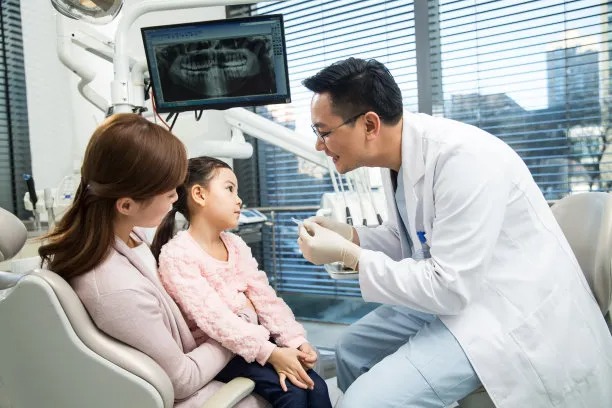Summary: Extracting a tooth may seem daunting, but it is often a necessary procedure for maintaining optimal oral health and overall wellness. In this article, we will explore the critical reasons for tooth extraction, including preventing the spread of dental decay, alleviating discomfort, creating space for orthodontic needs, and enhancing overall health. Each aspect plays a vital role in the decision to extract a tooth, demonstrating how this procedure can contribute significantly to your long-term well-being. Understanding these elements can help individuals make informed decisions in consultation with their dental professionals.
1. Preventing the Spread of Dental Decay

Tooth decay, if left untreated, can lead to more significant dental issues such as infections or abscesses. When a tooth becomes severely decayed, extracting it can prevent the decay from spreading to adjacent teeth. Without intervention, bacteria can multiply, traveling through the oral cavity and potentially causing systemic health issues.
Moreover, once a tooth has decayed beyond restoration, it diminishes overall dental structure, which can compromise the integrity of nearby teeth. By extracting a decayed tooth, a person can maintain better oral hygiene and reduce the risk of further complications, such as tooth loss or gum disease.
In essence, tooth extraction serves as a necessary protective measure to safeguard the health of the remaining teeth, ultimately preserving the integrity of the dental structure.
2. Alleviating Pain and Discomfort
Dental pain can significantly impact ones quality of life, making routine tasks such as eating and speaking uncomfortable. Often, the source of persistent pain lies in problematic teeth, such as those affected by severe decay or impacted wisdom teeth. In these cases, extraction can provide immediate relief and put an end to the discomfort.
A tooth that causes inflammation or irritation can lead to recurring pain issues. By extracting the problem tooth, individuals often experience a notable improvement in their overall comfort levels. Subsequently, the focus can shift to healing and recovery, allowing for a more enjoyable experience in daily life.
Therefore, tooth extraction not only addresses existing pain but also contributes positively to ones emotional and physical well-being, leading to improved daily functioning and satisfaction.
3. Creating Space for Orthodontic Needs
For those who require orthodontic treatment, creating adequate space in the dental arch is crucial. Overcrowding can obstruct the effective movement of teeth during treatment, delaying desired results. Tooth extraction can often provide the necessary space, facilitating proper alignment and enhancing aesthetics.
Orthodontic adjustments often require a particular arrangement of teeth to prevent future dental complications. By removing certain teeth, the orthodontist can move remaining teeth into optimal positions. This process ultimately contributes to a healthier bite and jaw alignment while improving one’s smile.
Furthermore, having enough space makes it easier to maintain good oral hygiene practices, reducing the risk of cavities and gum disease as patients progress through their orthodontic treatment.
4. Enhancing Overall Health and Wellbeing
The impact of oral health on overall health is profound. Chronic dental issues such as infections can lead to systemic illnesses, including heart disease and diabetes. By addressing problematic teeth through extraction, individuals can lower their risk of secondary health issues, showcasing a direct link between dental treatments and general wellness.
Moreover, maintaining a healthy mouth contributes to better nutrition and digestion. Painful or decayed teeth may hinder an individual’s ability to eat a balanced diet. By improving oral health through extraction, individuals can enjoy a wider variety of nutritious foods, facilitating better overall health outcomes.
This holistic approach emphasizes the interconnectedness of oral health and overall wellbeing, encouraging individuals to take proactive steps toward maintaining both through necessary dental interventions.
Summary:
In summary, tooth extraction plays an essential role in sustaining both oral health and overall wellbeing. By preventing the spread of decay, alleviating pain, making space for orthodontics, and enhancing general health, tooth extraction can serve as a crucial step in maintaining a healthy lifestyle. Awareness and understanding of these factors empower individuals to make informed decisions about their dental care and prioritize their health.
This article is compiled by Vickong Dental and the content is for reference only.
Vickong Dental
Vickong Dental is a large medical group established in Hong Kong in 2008 by professors from well-known medical universities in Guangdong and Hong Kong, as well as medical doctors from key national '985' universities (including Master's supervisors and senior professors). The chain of branches brings together expert dentists with PhDs and Master's degrees from Hong Kong and Mainland China, committed to providing high-quality dental treatment.
"Vickong Dental Practices the University Motto of 'Healing and Serving Society,' with a Stable Operation for Sixteen Years. It Has Been honored with Hong Kong Enterprise Leaders's Choice,' and is a Global Trusted Implant Center for the Nobel Implant System. Recommended by Hong Kong Metro Broadcast and Guangdong Television, it Serves Customers from Over Thirty Countries and Regions, Gaining the Trust and Favor of Citizens from the Guangdong-Hong Kong-Macau Greater Bay Area and Surrounding Cities.

Thousands of customers' unanimous praise
The most recognized and highly recommended dental service by customers in the Guangdong-Hong Kong-Macau Greater Bay Area
We Ensure You Receive Detailed Care and Attention Here
Hong Kong standards, Shenzhen prices, Your Trusted English-speaking dentists

Vickong Dental Medical-Grade Instrument Disinfection Process
Vickong Dental Medical-Grade Instrument Disinfection Process

Vickong Dental Chain: A Warm and Comfortable Environment for Treatment






Appointment Hours

Q&A
Why choose Vickong Dental?
Vickong Dental practices the university motto 「Medicine to Benefit Society」, with each branch bringing together highly qualified dentists with doctoral and master’s degrees from Hong Kong and the Mainland, and has maintained seventeen years of steady operation。Recipient of 「2024 Hong Kong Enterprise Leaders Brand」, 「2025 Hong Kong Enterprise Leaders Brand」, a Nobel Biocare Global Trusted Implant Center, and a brand recommended by Metro Radio Hong Kong and Guangdong TV。
To date, we have served customers from more than thirty countries and regions,earning exceptionally high word-of-mouth recognition and trusted recommendations from residents across the Guangdong-Hong Kong-Macao Greater Bay Area and surrounding cities
We have eight major branches in Zhuhai、Shenzhen,and a consultation and service assurance center in Hong Kong,so you can book a free consultation at any time for any questions,which is very reassuring.
If I do not accept the quotation after the CT scan, will I be charged??
No! As long as the actual treatment has not started, you will not be charged any fees.
Will there be any additional charges during the treatment process?
No, there won’t be any additional charges. Before treatment begins, we will clearly explain the treatment plan and its corresponding fees. Only after the patient agrees and signs the consent form will we proceed with the dental service.
Can I pay in Hong Kong dollars?
Yes. Vickong Dental accepts payment in Hong Kong dollars. The amount will be converted based on the exchange rate of the day, and the applicable rate will be clearly communicated to you in advance.
Can I reschedule my appointment at any time?
Yes. Please contact us via **WeChat** or **WhatsApp** as early as possible, providing your original appointment time and details, along with your preferred new date and time slot for rescheduling.













